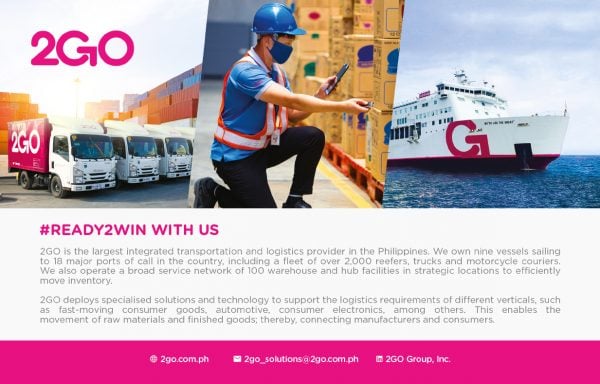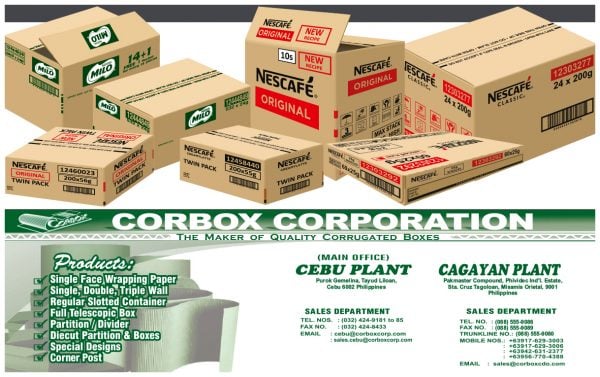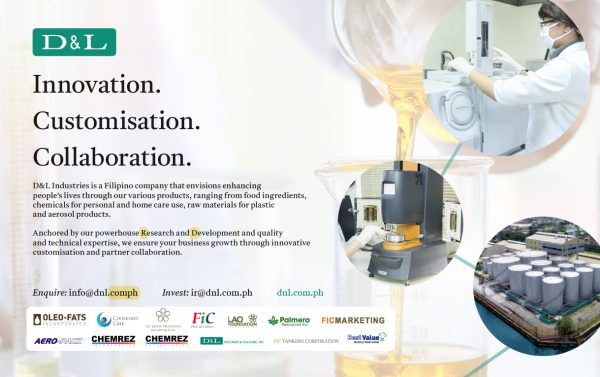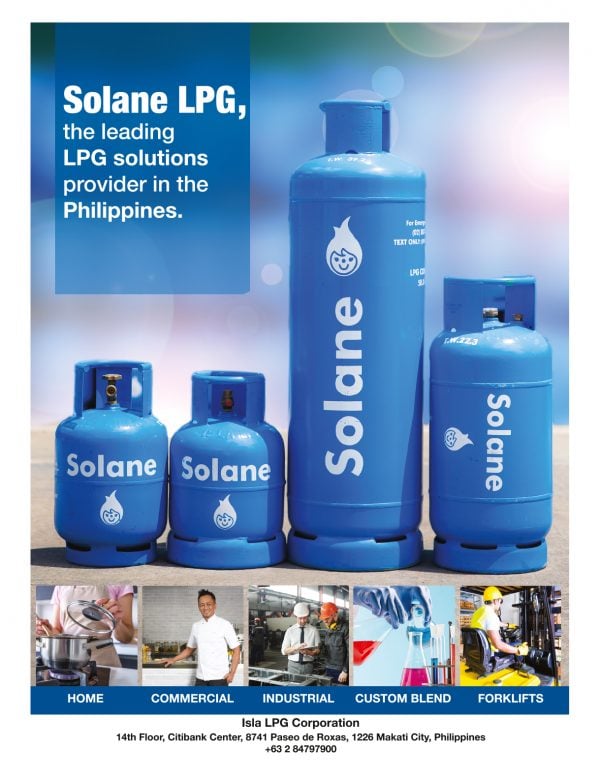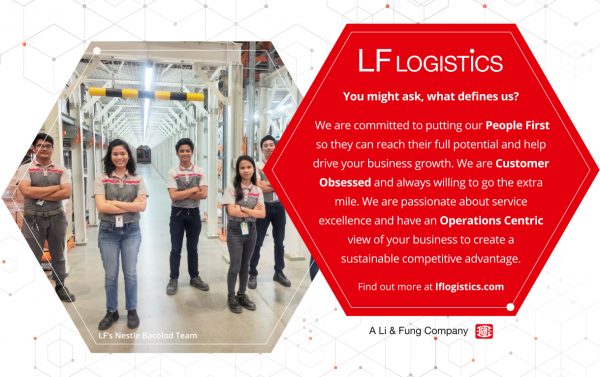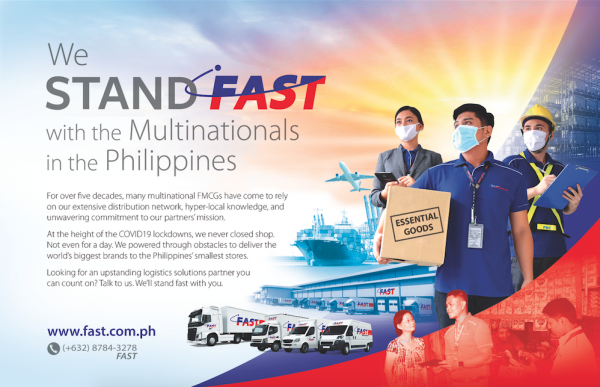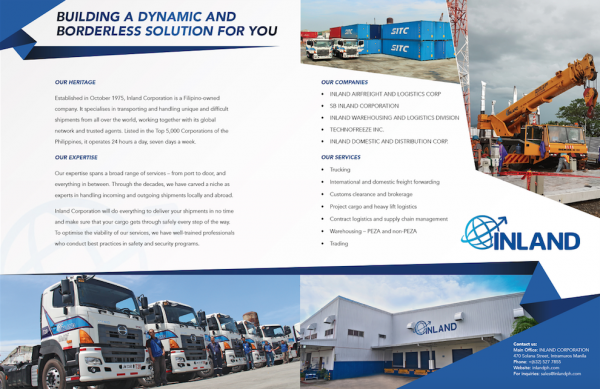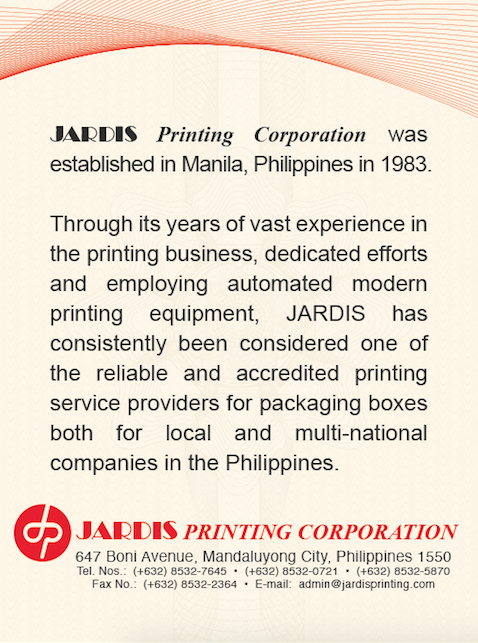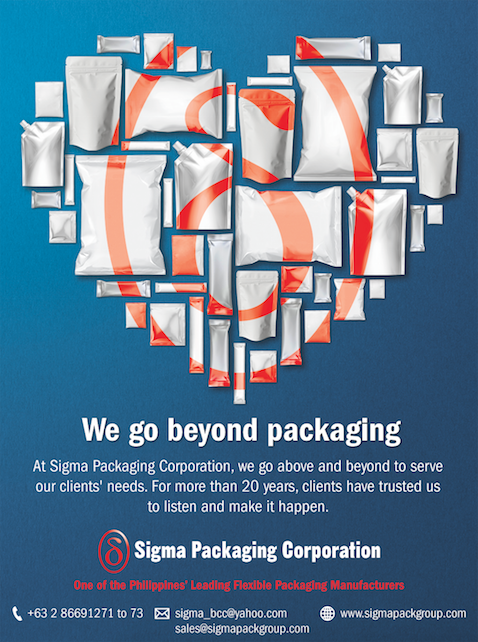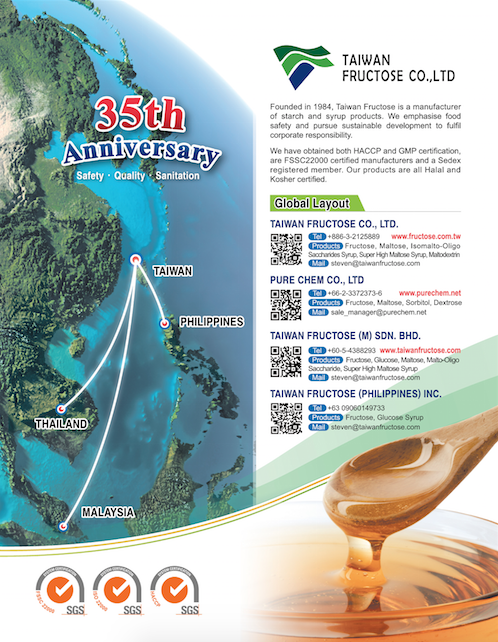The array of brands that fall under the umbrella of multinational food corporation Nestlé is familiar to millions around the world. From Maggi noodles to Gerber baby food, from KitKat to Nescafé, Nestlé’s 2,000- plus brands have become more than a part of life all around the world – for many, they’re a way of life.
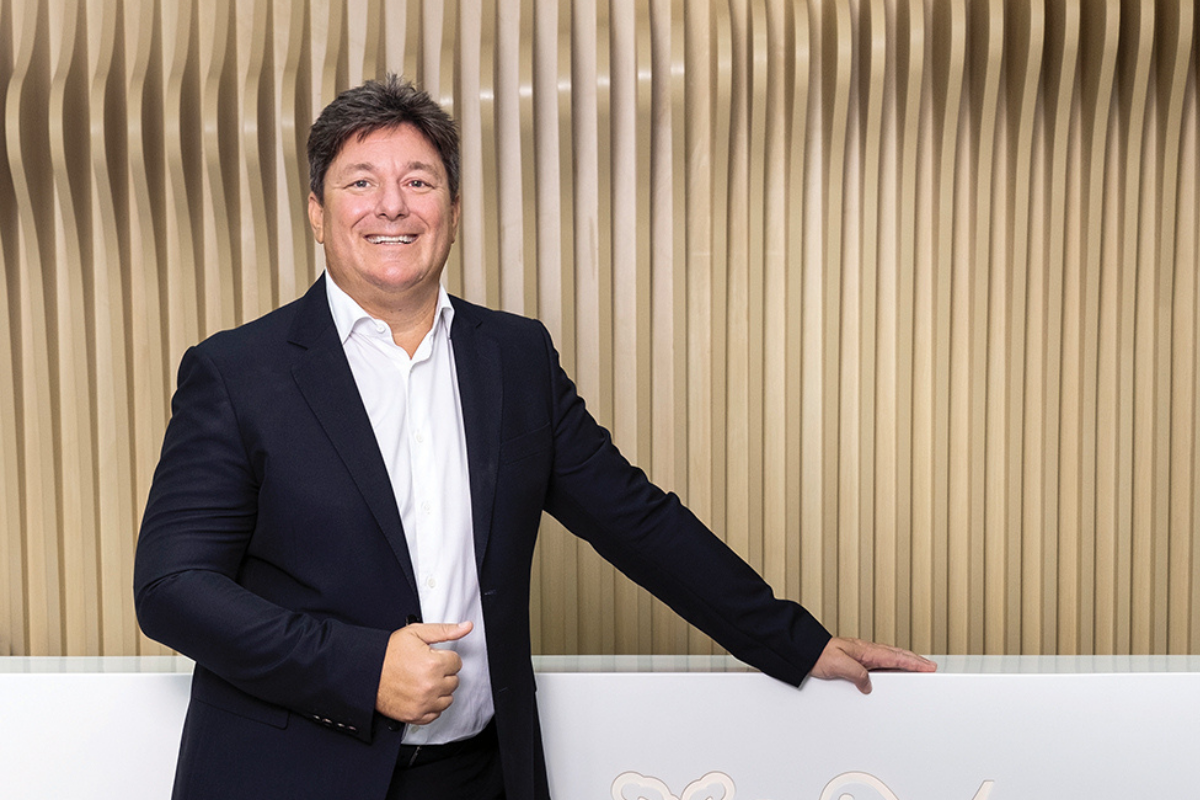
And for the leaders of Nestlé’s international operations, the challenge is to determine how its products best fi t in to their respective country’s lifestyle.
This doesn’t simply suggest how Nestlé should do business in those parts of the world; it informs company culture, which Nestlé Philippines Chair and CEO Kais Marzouki believes is as necessary an ingredient as milk to Milo. “I think there’s always a blend between the local country culture and the corporate culture,” he shares.
“And as an organisation, Nestlé has a strong corporate culture of respect. Respect for ourselves, respect for others, respect for the environment and respect for our consumers.” But so far has Nestlé come from its Swiss inception as a baby food manufacturer in 1867, and so large has it grown, that Kais believes the company has become “a world of its own”.
“Because it’s such a big corporation, there’s always this pull to be immersed in Nestlé and not to look outside,” he says. “This is something you always have to fi ght and put the focus back outside.”
And in the case of the Philippines, Nestlé has become an institution in the 110 years it has had a presence in the country, where it is regarded as the ‘Kasambuhay’ or trusted companion in life of Filipino families. With such a long history behind them, it’s no surprise the company’s brands – among them Bear Brand, Nescafé, Milo and Maggi – are household names in the Philippines today.
“We’ve calculated every Filipino consumes on average one serving of a Nestlé product per day,” Kais says. It’s not just the brands that boast such name recognition, either. “Everybody here also knows Nestlé Philippines as the umbrella brand,” Kais adds. “It really demonstrates how the company is part of the fabric of the country. That said, there’s always room to grow.”
Rising to the challenge
Kais has built his entire career on Nestlé’s growth. A 25-year veteran of the corporation, he was straight out of university when he started at Nestlé. “It’s the only company I’ve ever worked for. I began with an internship in the head office in Switzerland when I was a student. When they offered me a job, I said yes, of course,” he reveals.
What followed was total immersion in a company he came to know as supportive, teamwork-oriented and morally upright. “Nestlé is always trying to do the right thing. It really cares about consumers, about the environment and about communities, so as employees we easily feel proud to be part of this enterprise.”
Internally, Nestlé never failed to provide Kais with challenges, opportunities and new experiences. “Professionally, you’re always acquiring new skills,” he says.
“Every role is like a mountain to climb, and every journey is a great adventure. Maybe I’m biased because it’s all I know. After all, you don’t miss what you don’t know. But for me, it’s really been something. I feel like 25 years have gone by in five because they’ve been so rich in experiences and learnings.”
The fact that plenty of opportunities exist within the multinational Nestlé to gain international exposure was another plus.
“It’s been a wonderful opportunity to live in different countries, get to know them, get to know the cultures and the ways of working.” Kais’s first overseas ticket came when he joined an internal consultancy team based around sales and marketing productivity.
“We were reviewing sales and marketing and supply chain organisations for Nestlé in different parts of the world,” he explains. Prior to his promotion to Sales Director and after assuming responsibility for the coffee and Milo business in Australia, his passport was stamped in such disparate locations as Lebanon, Japan, South Africa and Trinidad and Tobago.
“Incidentally, one of the projects I worked on was in the Philippines. It must have been destiny.” Exactly two decades later – to the day – Kais arrived in Manila to head up Nestlé Philippines. The Filipino arm occupies a special place within the multinational group.
“It’s one of our top branches, one of the biggest markets in the group,” Kais says. “Beyond that, it has the highest sales per GDP per capita of any Nestlé market in the world.” Such a jewel in the crown is the Philippines operation that Kais says his appointment to the CEO role in 2018 came as a great reason to celebrate.
“When I got the phone call, my boss simply said, ‘Congratulations, you’re going to the Philippines.’ I was excited because I knew what the team had in itself, and there were a lot of good examples coming from the Philippines over the years. It’s a market that has a great reputation within the group.”
While Nestlé Philippines’ operations haven’t changed much since Kais first encountered them 20 years earlier, the country itself has. “The trade, which was very fragmented, has consolidated and consumer habits have evolved,” he says.
We’ve calculated every Filipino consumes on average one serving of a Nestlé product per day.
“But on a personal level, what I really like is that the people haven’t changed at all. They’re just as warm, supportive, passionate and caring as ever. In some countries where there’s been rapid development, one tends to become more self-centred and individualistic, but not in the Philippines – the people have stayed the same. That’s what I really admire.”
The other big change in the Philippines in that time has been the rise of local family-run businesses, which has challenged Nestlé’s market dominance.
“We aren’t really defied by the multinationals, but we’ve seen regionally managed family businesses take a share of the categories we’re in,” Kais concedes.
“It’s a new situation for Nestlé Philippines because we’ve gone from little to no competition to very intense competition, so we have to find ways to continue to grow and gain share.”
That challenge, combined with the uphill task of increasing awareness of what is already a Filipino institution, has ensured Kais’s work is cut out for him. Nestlé’s dominance in the Philippines is spearheaded by its strong presence in the milk powder and coffee markets.
“These are the two big legs here. You need those one or two strong products to carry the rest of the range into households,” he points out. The Philippines’ growing trade scene made it easy for the nascent Nestlé to establish a foothold.
“When the country’s trade was more fragmented, the challenge for us was finding the right way to reach our customers, and the only way was going through the famous sari-sari stores. We still have more than one million of those today, but for a long time, they gave us basically unparalleled distribution and brand awareness.”
But times have changed. Now that trade in the country has become more established, its competition is fighting even harder for a share of the market. “It’s not easy for competitors to come in and say, ‘OK, we’re going to replicate Nestlé’s success in a minute.’ What we’ve done is something you build; it’s a competency that comes with time,” Kais says.
“So instead, they’re going in much more aggressively on pricing to build their market share, which is a very different dynamic. There are more players in the market than ever, each one vying to take a share of the pie.” What competition is good for, Kais admits, is to keep complacency at bay.
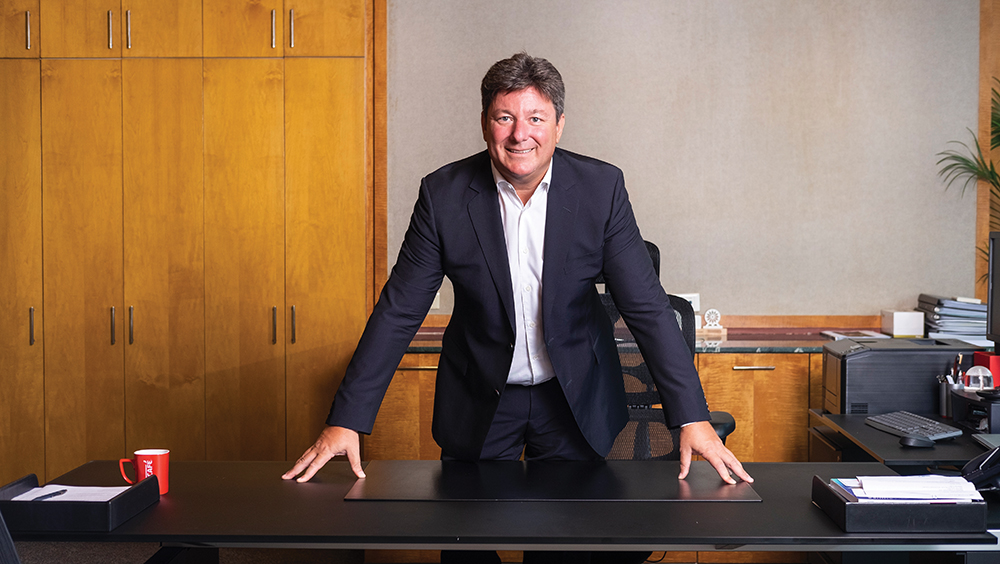
“Competition always keeps us on our toes and that’s good because honestly, when we’re doing well, we don’t learn as much,” he says. “When we’re challenged, we have to rethink everything, and that’s when we acquire new perspectives we didn’t consider before. So it’s a good thing, even if at times it can be painful.”
An underdog approach
In response to industry challengers, Kais has led the charge for Nestlé to get back on the front foot. “If we say we’re the market leader, are we really leading the market, or is somebody else leading the market and we’re just the biggest?” he says.
“So what I’ve tried to do with my team is really focus our efforts on three big things: strategy, organising ourselves to execute best, and culture.” For a company with so many brands in its portfolio, Kais believes a shotgun approach to strategy is useless.
“Focus is essential because we need to make sure we have our core products ignited and firing,” he explains. “Once the core is doing well, you have enough means to support the rest of the range as well.”
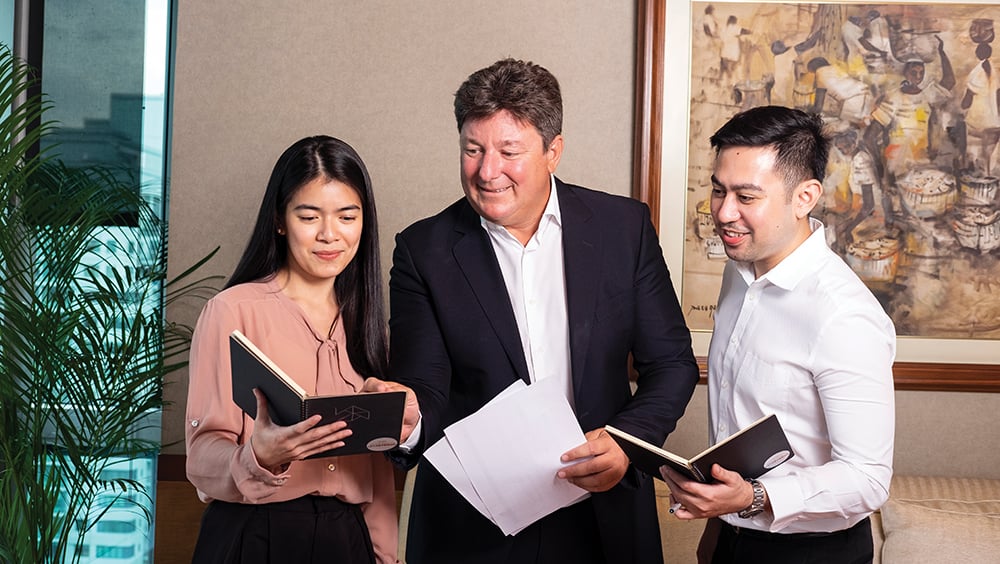
To make this happen, innovation is usually the first port of call for many in the fast-moving consumer goods space, but Kais insists renovation is just as important. “We strive to renovate our recipes to always make them better and improve the value proposition for our customers,” he says.
“At the same time, the breadth of our resources means we have to be much more discerning than a smaller operation would be, so I believe streamlining our portfolio puts those resources to better use.”
Then, Nestlé Philippines can reassess its strategy to find the right channels and customers on which to push those products. “It’s a much more effective use of our resources,” he adds.
Organisation, the second pillar in Kais’s plan, requires what he describes as constant refinement. “If you improve your company as you go, it’s a slow burner, you’re constantly assessing it, then there’s no need to stop everything for a major reorganisation,” he asserts.
“Do we have the right roles, the right capabilities, the right competencies? What do we need in the future? Anybody can have a strategy, but making sure you know how you’re going to execute it makes all the difference in our industry.”
The third and final pillar in the plan is culture, which Kais says must go beyond being an established household name. “Despite our position, I believe we need to have the mindset of a challenger,” he suggests.
“An underdog approach can be more daring, nimble and street smart. It can really change the way we do things and make us more of a risk-taker.” Big business is often risk-averse for the sake of self-preservation, but Kais believes to encourage risk invites success.
“I think that’s something very important. You don’t want to be a blasé number one player watching others make their moves.” To shake things up and avert this outcome, he has ensured his team is prepared to meet the rather unique challenge of being an underdog market leader.
“We have a strong team that’s very passionate, very committed and is unafraid of taking on any challenge,” he enthuses. And while it’s not unusual for incoming managers to find a team that’s set in its ways and resistant to change, Kais wasn’t worried.
“When you’re the new arrival, they might say you don’t know how it is, you’re preaching, you’re pushing,” he says. “You don’t always know what kind of reception you’ll get. But because I was here 20 years ago, I knew what to expect – a team that likes to excel, likes to respond to a challenge and always goes above and beyond in that response.”
According to Kais, all three pillars of the Nestlé Philippines game plan must be in perfect alignment in order to be a success. “Otherwise, we’ll have gaps. So what we’re trying to do is work on all three equally,” he says. The team is also working on addressing an issue that has persistently challenged modern business.
“Gender balance is an important element, and we’re lucky that the Philippines is a very gender-balanced country in general,” Kais says. “In our company, much of the top talent is female and that really helps to set the right tone, the right balance and the right kind of harmony in the team.”
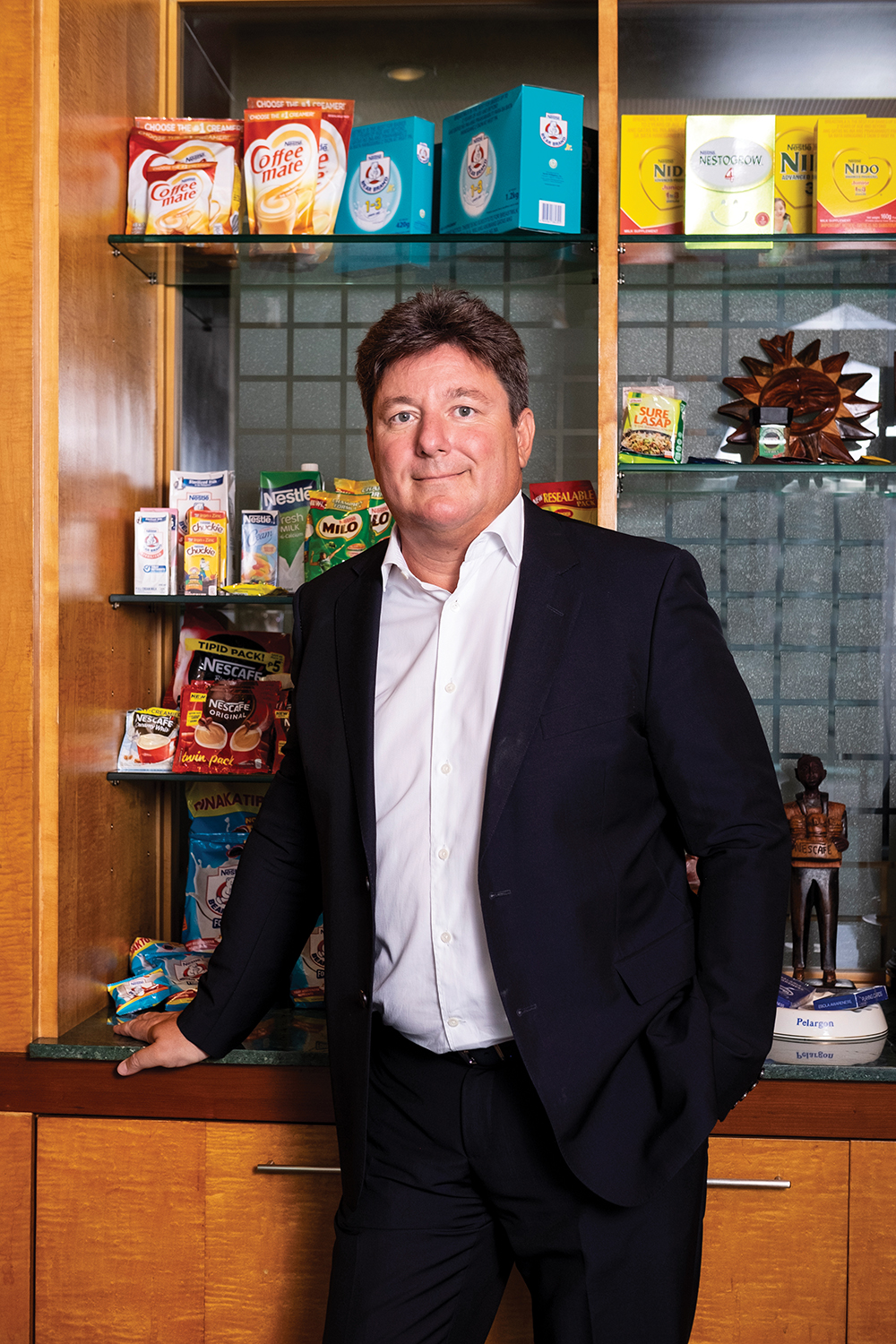
Nestlé Philippines prides itself on giving back to its team as much as it puts in. In March 2020, the company launched its Global Parental Support Policy, which extended fully paid maternity leave to 18 weeks and paternity leave to four weeks.
The policy is gender neutral, which Kais says makes it one of the most inclusive and progressive within the country.
Coping with crisis
It is this harmonious, balanced team that has been well poised to keep the company at the top, even during the tough times – and they don’t get much tougher than a global pandemic. When the Philippines went into COVID-19 lockdown, the country couldn’t have known it would become a test of endurance.
“It was one of the longest lockdowns in the world, even longer than Wuhan,” Kais says. As the pandemic unfolded, Nestlé Philippines quickly acted on three priorities: the safety and welfare of its own people and those of its partners; continued manufacturing and availability of products; and reaching out to Filipinos in need.
Shortly after the lockdown started, the company implemented a US$10 million Kasambuhay initiative that reached out to a million families, thousands of frontliners and people in need of health care. Although the lockdown was a hindrance, Kais says it gave his team the perfect platform to show their stuff.
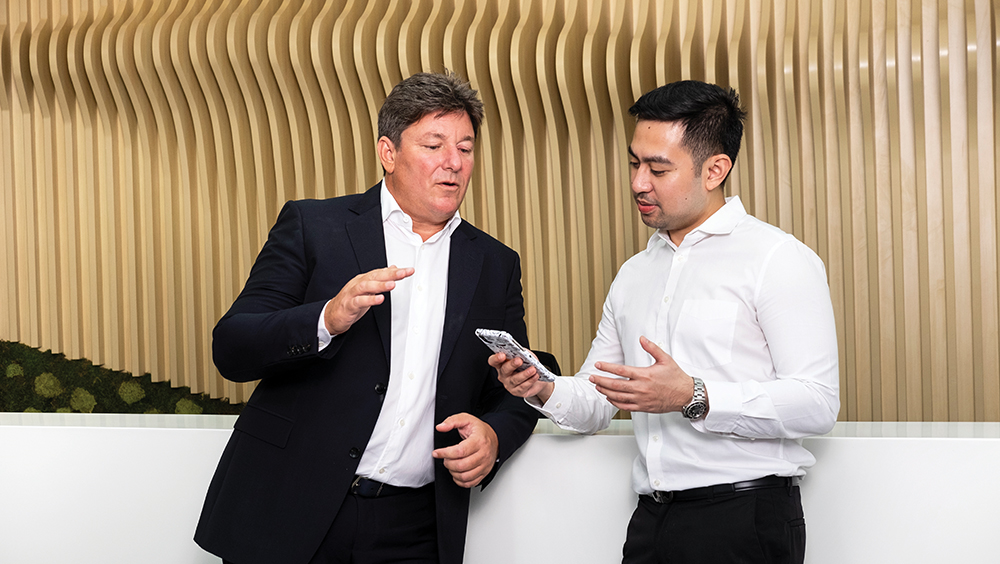
“I was always advocating that we needed to become more agile, take more initiative and more ownership,” he recalls. “Honestly, in this crisis, I think that the team showed just how agile it can be. We overcame these challenges because we ramped things up very quickly.”
The key was being able to produce and deliver. “Our factories and distribution centres never stopped running, and we were able to return to high capacity levels within days,” he says.
The reason the Nestlé Philippines team was able to respond so fast was not down to micro-management from the top; rather, it was simply thanks to initiative and ownership at every level of the organisation.
“A large part of the culture at Nestlé Philippines is empowerment,” Kais tells. “Historically we have been a hierarchical corporation, so we try to make sure everybody has a voice now. We always say, ‘Put the fish on the table. If there’s an issue, don’t hide it. Voice your opinion, fight for your ideas. Let’s have a discussion. The boss is not always right.’”
It was this freedom that gave each team the agency to address some of the biggest COVID-19 hurdles, such as talking to local governments about opening roadblocks and organising vans to pick up workers.
“Some of our third-party employees were apprehensive to return to our sites, so our people went to visit them at home with baskets of products, reassuring them it was alright to come back, that we had put in place safe working conditions.”
Ultimately, the move worked almost too well: more than 350 workers ended up living in Nestlé Philippines’ factories during the worst of the pandemic, afraid to expose their families to potential infection.
“We had to house hundreds of people for consecutive weeks. We had to organise food, sleeping arrangements, entertainment,” ,” Kais remembers. Faced with this unprecedented situation, he says his team delivered – and then some.
“On top of all that, supply was constrained and demand was high – consumers were in a pantry-filling mode – but we were able to very quickly adapt and then deliver.”
Partnering for success
Since June 2020, the Philippines has begun to open up little by little. Fear and panic surrounding food shortages was among the first to dissipate, but a new reality emerged. “Once we entered the ‘new normal’, many consumers realised they had less income and, therefore, less purchasing power,” Kais says.
“Initially, we couldn’t supply enough; now the demand is lower. Once again, we had to adapt and make sure we could provide the right offerings to our consumers, taking into account their constraints.”
Fortunately, Nestlé Philippines’ phalanx of suppliers and partners were there to face the storm alongside it. The strength of these collaborations has been a constant for the Filipino branch, and is part of what makes it the market leader, according to Kais.
“The quality of our products has to be consistently superior, and what makes that possible is good collaboration with our suppliers,” he stresses. Nestlé is the largest manufacturer of coffee in the Philippines, something made possible by its extensive network of local suppliers.
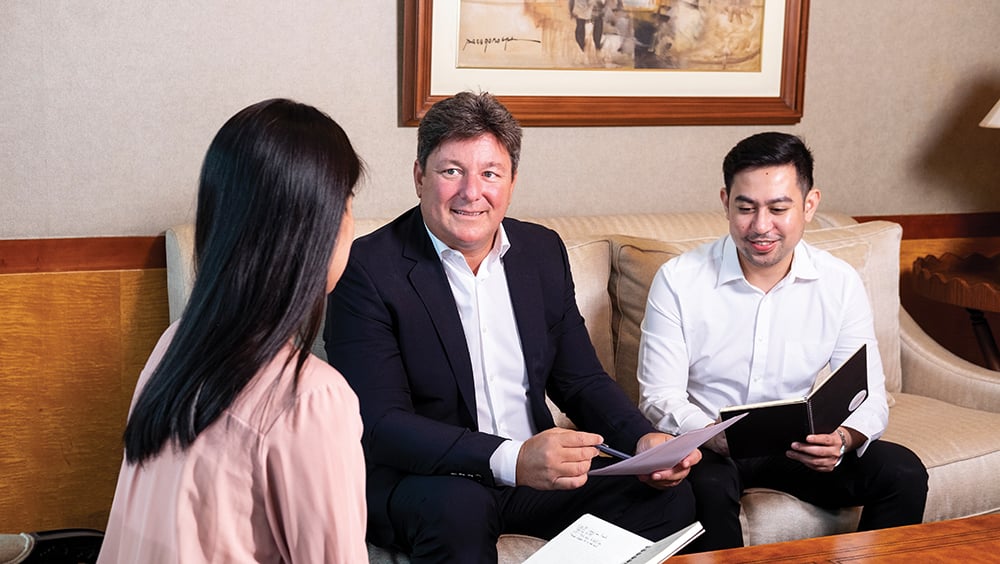
“We try to buy as much coffee locally as we can to support farmers,” Kais boasts. In fact, it purchases all the domestically grown Robusta it can source. “It’s something we’ve done for years through our Nescafé brand. Support for farmers increases their yields and helps them have better crops.”
Nestlé also has a training program in place for farmers, consisting of agronomy lessons and finance courses. “We’ve done this for many years; we see it as an investment in them. We’re not the company that will go and set up its own plantation; we want the farmers to have their income, their business, their way of life, and to be happy to sell to us,” Kais says.
To further support these farmers, the company has established Project Coffee+, which aims to triple the yields of 1,500 farmers over three years. “We have a long-term commitment to help Filipino coffee farmers increase their yields and incomes towards a better quality of life. We are deeply engaged in achieving that,” he adds.
Another cause Nestlé Philippines is championing through its partnerships is reducing the impact of plastic on the environment. “We are all becoming more aware of the impact plastic has on the environment. So for us, being at the forefront of sustainability is crucial,” Kais insists.
“The Philippines has been identified as a major contributor to ocean plastic pollution, and as a large company consuming plastics through our packaging, we want to lead efforts to tackle plastic waste.”
In August 2020, it achieved its first month of plastic neutrality, with the recovery effort gathering 2,400 tonnes of plastic waste. “We recovered as much plastic as we put out as packaging,” Kais confirms.
“That plastic has to go somewhere, so we channel it into cement kilns, where it gets co-processed and completely destroyed in line with international environmental standards.
“We had to find the right partners within the cement industry that are happy to process the plastic, and the right partners to retrieve and divert it from landfill. Now, we’re able to commit to plastic neutrality every month.”
Coaching the team
Forced to keep so many plates spinning throughout a time of unparalleled turbulence, Nestlé Philippines has found an ideal leader in Kais – relaxed, supportive and open to whatever comes his way. “I like to be the coach of a team,” he says of his leadership style.
“I see my role as setting the right framework for the team to perform. I’ll ensure we have the right players and the right strategy for the team to do well, and I’ll support the best I can.” If there’s an opportunity or a gap, however, Kais is unafraid to step onto the field himself.
“Time and experiences teach you to step back from situations and look ahead,” he states. “When you take things calmly and with resolve, you can make the right decisions. And I always like to be there for my team. I like to think that they know I’m somebody they can rely on to be there if something happens.”
The half-German, half-Tunisian CEO believes his mixed heritage has given him the best of both worlds. “I have been told that I have a German head and a Mediterranean heart, and they complement each other,” Kais laughs.
“When you have the right harmony between your values and your actions, when what you believe in and what you want to do are consistent with each other, that’s when you sleep soundest. For me, that’s when I know I’ve done the right thing for my company and I’ve been fair and supportive of my people.
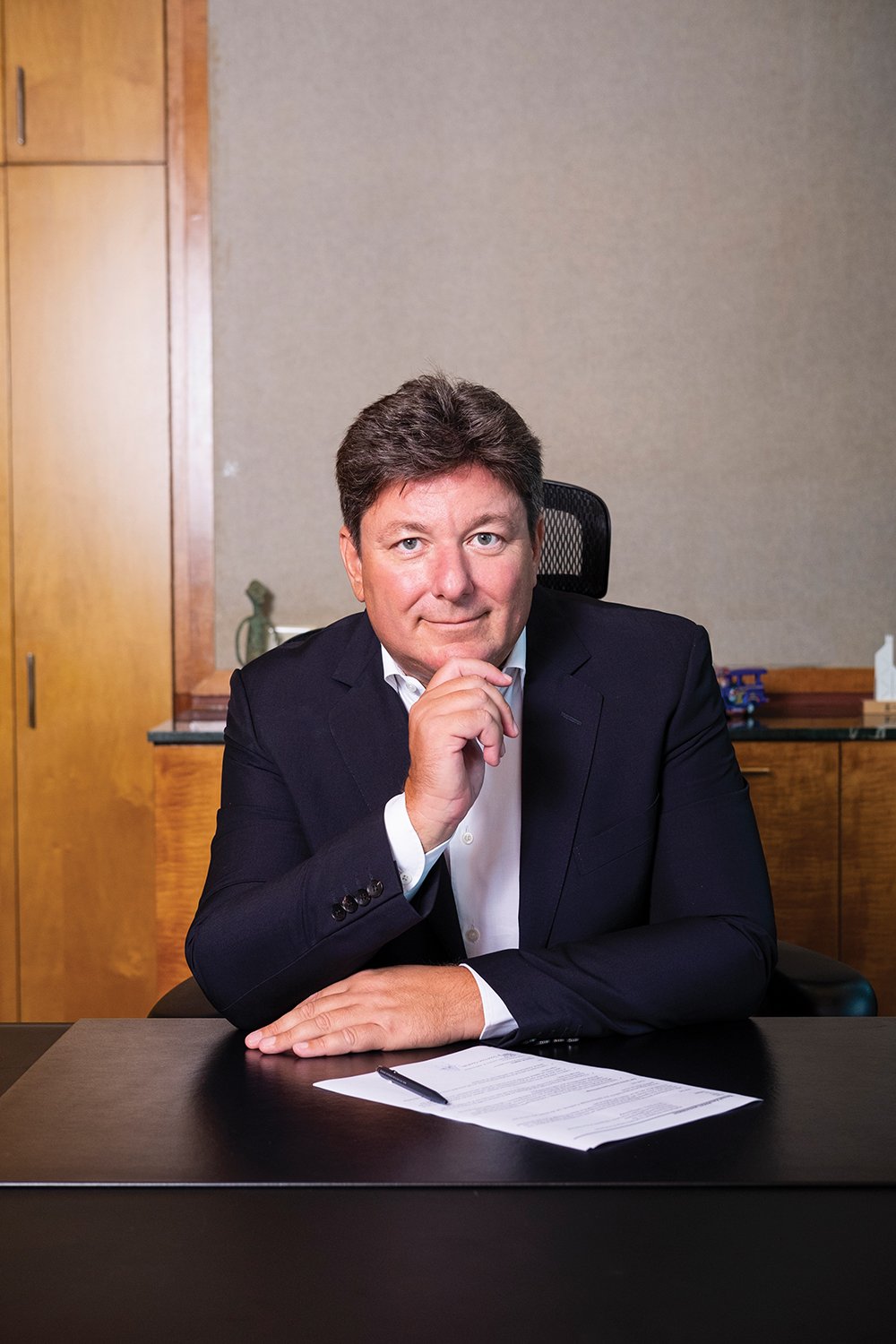
“Leadership is about people. Of course, your given objective is the destination, but what will stay with you is the journey, and what will live on in you is the company you had along the way.
“To be an effective leader, first, I believe that you have to be yourself, as you can never be anybody else but yourself. However, you should never stop working on equipping yourself with more skills.
“Secondly, always do what you believe is right – right for the organisation and its people. Not only right for now, but also for the longer term. Others around you might not concur, so you need to listen and empathise, but eventually you need to stand for what you concluded.”
The time overseas afforded to Kais during his journey with Nestlé has, he says, quite literally expanded his horizons. “I love travelling and thanks to my job, I’ve had the privilege of being able to reconcile this passion and work,” he says.
“In my downtime, I’ve taken great pleasure in discovering the Philippines. Wherever I am, discovering the country I live in is very important to me.” As with work, it’s the people who set the Philippines apart for Kais.
“Across the entire country, everyone you meet is warm, open and keen to connect,” he beams. “I’ve lived in so many different places, and what I’ve found is what you keep in your memories are the people. It’s not the beauty of the place or what it has to offer; it’s the people and the impact they have on you.”
As the Philippines continues on the long road to COVID-19 recovery – or, at least, to the new normal – the pursuit of new heights continues for the company whose brands, from infant nutrition to comfort food, have become staples in Filipino households.
“We strive to make a positive difference in the lives of Filipinos and in so doing, we are grateful to have earned their trust through the years. We try to have better products, nutritious products, and a firm commitment to sustainability. That’s what makes us all proud at Nestlé, that’s what really motivates us to get out of bed each morning.”
Whatever lies ahead for Nestlé Philippines, its uniqueness is assured. One brand, a particular standout even to Kais, seems to exemplify its position in the nation. “I love Milo,” he grins. “For some products competition can come close, but Milo is Milo; it’s irreplaceable. There’s nothing like it.”
Proudly supported by:
